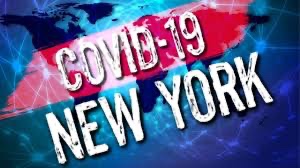By Jennifer Nigro, Esq.
Three new executive orders from Governor Cuomo as of April 20, 2020
Labor and Public Health – Executive Order 202.19
Labor law – NYS Warn Act – suspended to delay the issuing of a notice required from businesses that receive federal Paycheck Protection Program funding who then subsequently rehire employees, as long as the business provided a required notice when it initially laid-off employees.
Health law – Coordinated COVID-19 testing prioritization process and requires laboratories in the state to complete COVID-19 diagnostic testing in accordance with that process (civil penalties of up to $10,000 or three times the value of testing, and possible revocation of the offending laboratory’s operating certificate).
Skilled nursing facilities, nursing homes, and adult care facilities must notify family members and next of kin within 24 hours if a resident tests positive or dies from COVID-19 – or face penalty of $2,000 per violation per day. Subsequent violations would be considered a violation under section 12-b of the Public Health Law.
Domestic Relations – Executive Order 202.20
Persons who would have an issued marriage license expire as a result of a directive to maintain distance during the COVID-19 pandemic, would not be subject to the 60 day waiting period required to obtain a marriage license. Persons unable to marry within the time frame issued on a marriage license would have fees waived related to obtaining a second marriage license that mirrors the initial issued marriage license.
The Governor directed that the issuance of a marriage license application, marriage license, witnessing or solemnizing of a marriage ceremony would be authorized to be performed utilizing audio-video technology provided the following conditions are met:
• The couple presents valid photo ID to verify identity whenever required by law,
• The video conference allows for direct interaction between the couple and the town or city clerk, the witness, or person to solemnize the marriage,
• The couple must affirmatively represent that he or she is physically situated in the jurisdiction where the marriage is legally allowed to occur within the State of New York,
• The couple must transmit by electronic means a legible copy of the signed document directly to the town or city clerk, the witness or the persons to solemnity the marriage on the same date it was signed,
• The person signing by such means may transmit the signed copy back to the person responsible for the document,
• To the extent possible all parties must use best possible efforts to ensure the document is transmitted in the most confidential manner, and
• The electronic signed copy of the marriage license or marriage license application will become the official document for purposes of the Domestic Relations Law.
Executive Order 202.21 – regarding solemnization of a marriage ceremony – expressly includes any officiant, public or private, as able to perform or solemnize a marriage ceremony utilizing audio-video technology.




